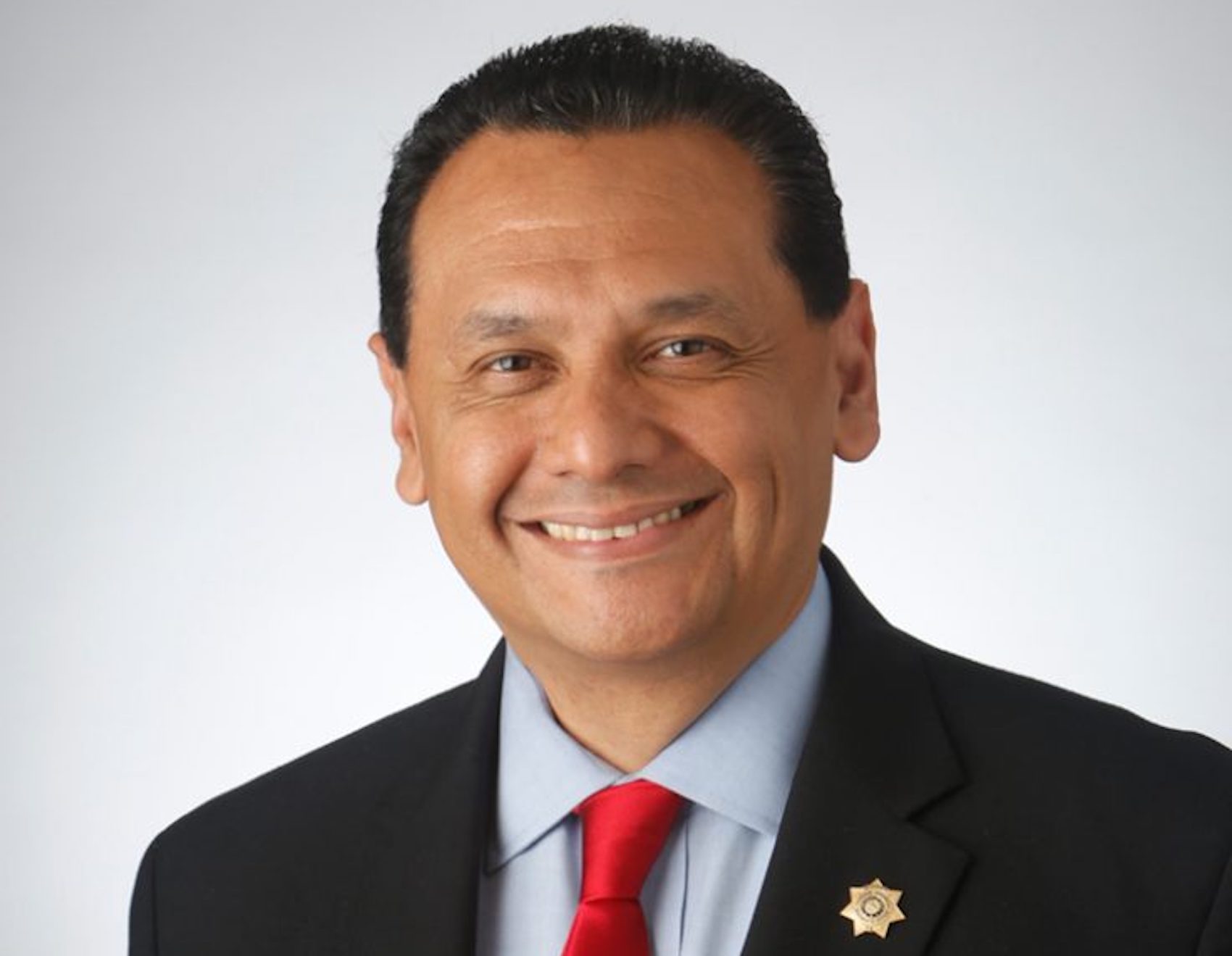Reformer Ed Gonzalez Wins Second Term As Harris County Sheriff
Houston area voters re-elected Gonzalez after he supported bail reform, cleaned up the county jail, and provided aid to incarcerated people living with opioid use disorder.

Although Texas may be slowly becoming a purple state, its criminal legal system is still dominated by hard-right sheriffs and prosecutors who want to expand their office’s footprint.
Voters in Harris County (Houston) supported change on Tuesday by re-electing Ed Gonzalez, one of the most reform-minded sheriffs in America.
Thanks in part to constant lobbying from local advocates, Gonzalez spent his first term cleaning up the county’s local jail, supporting bail reform efforts, and decreasing the number of misdemeanor charges that could lead to arrest. He also withdrew from the county’s 287(g) collaboration program with ICE —and even distributed a drug to incarcerated people with opioid use disorder that lessens their cravings for heroin.
“Thank you to those who voted for me; and whether you voted for me or not, I will continue working hard to keep you safe,” Gonzalez wrote on Twitter. “The time for campaigning is over. It’s time to unite. We’re all in this together!”
Gonzalez, an 18-year veteran of the Houston Police Department and a former Houston City Council member, was elected sheriff in 2016. He inherited a county jail with poor conditions of confinement and inadequate medical treatment that resulted in at least 20 preventable deaths, according to a 2009 Department of Justice investigation. Suicides occurred at a high rate. The county also charged incarcerated people exorbitant rates for everyday items— including $10 for access to nail clippers—a practice Gonzalez ended this year.
Although Gonzalez has not solved all of the department’s issues, he made substantive efforts to right many of the wrongs committed by his predecessors. In 2017, Black Lives Matter Houston organizers criticized Gonzalez after Vincent Young died by suicide in the Harris County Jail while experiencing untreated drug withdrawal. (Young’s family later sued the county in federal court.) But Gonzalez improved the jail’s conditions after Young’s death. Last year, no one died by suicide in the jail.
Elsewhere, Gonzalez supported reform efforts rejected by other sheriffs around the country. In 2017, Gonzalez terminated the county’s 287(g) agreement with ICE, which allowed local cops to enforce immigration law on ICE’s behalf. (Although the Houston Press later reported that Gonzalez continued to honor ICE detainer requests by holding people inside the county jail so ICE could pick them up.) That same year, Gonzalez began offering people leaving the jail shots of Vivitrol—a drug that curbs opioid cravings and helps wean people off of opioid dependence.
Perhaps most important, Gonzalez pushed his department to arrest fewer people and to hold people in jail for shorter periods of time. In 2017, advocates sued Harris County—and Gonzalez—over the county’s misdemeanor bail practices. But in March of that year, Gonzalez testified against the county and in favor of reforming local cash bail rules. (A lawsuit over the county’s felony bail procedures is pending.) This year, Gonzalez’s office launched a pilot “cite and release” program that lets officers issue tickets for offenses including graffiti, driving without a license, and petit theft. In March, as COVID-19 began its spread across the country, Gonzalez offered prescient warnings of the danger posed by the virus to incarcerated people. “I’m trying to do my part to serve our broader community and healthcare workers by not adding more potential ICU patients from my jail,” Gonzalez said. “I’ve tried to be proactive, I’ve tried to educate others about the seriousness of the issue.”
And while Gonzalez has not stood with calls from local activists to defund the police, he has expressed a willingness to use fewer armed officers for low-level emergency calls. In 2017, his office started an iPad-based telepsychiatry program where deputies responded remotely to mental health crises. The program is now permanent, and Gonzalez has said that he is looking into whether unarmed healthcare providers could respond to even more emergencies.
